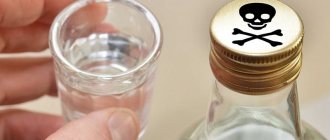Nowadays, meat poisoning is becoming systematic. This depends not only on carelessness when purchasing, or improper preparation, but also on an unscrupulous manufacturer. For many people, due to being busy or simply not wanting to cook, they have the opportunity to buy ready-made meat or a dish that includes it (salads, marinated kebabs, cutlets, etc.). It's comfortable. But this method of eating meat can be fraught with consequences.
Spoiled meat, overflowing with pathogenic bacteria, enters the body, and there it begins its harmful effects. It is expressed in the proliferation of bacteria, which, accordingly, pass into the gastrointestinal tract, and then, with the blood flow, penetrate all human organs and systems. As a result, intoxication occurs. Every person who suspects a deterioration in their condition due to eating unsuitable meat should know how many hours later meat poisoning appears. The first symptoms may make themselves felt within two to three hours, or maybe the next day. It depends on the amount of spoiled product eaten and the degree of spoilage.
How does meat poisoning occur?
Meat poisoning can result from:
- slaughter of sick animals;
- violation of sanitary and hygienic rules during cutting;
- violation of transportation and storage rules;
- eating meat dishes that have not undergone sufficient heat treatment.
Meat is a breeding ground for many microorganisms. Once on the surface of a piece, they quickly multiply, penetrating into the deeper layers and producing dangerous toxins. If meat does not undergo the necessary heat treatment and is consumed “with blood,” then pathogenic bacteria are likely to enter the body.
Toxic waste products of pathogenic microbes cause an inflammatory process in the mucous membranes of the stomach and intestines. As a result, the absorption of water and nutrients from the chyme by the villi of the small intestine is disrupted. This process underlies the formation of gastroenteric syndrome.
In case of meat poisoning, general intoxication syndrome is usually expressed. Its occurrence is associated with the entry of a bacterial toxin into the bloodstream.
Poisoning with meat infected with clostridia botulism has a slightly different pathogenesis. These microbes produce one of the most powerful poisons, which is carried through the bloodstream throughout the body, penetrates nerve synapses and blocks their activity. As a result, muscle paralysis occurs, including respiratory muscles, with the most serious consequences.
An invalid diet
The main thing in the diet of a person who has suffered poisoning is to ease the load on the stomach and digestive tract as a whole as much as possible.
Protein and fatty foods should be completely excluded in the first two to three days. You cannot use alcoholic drinks as disinfection - this will create additional stress on the liver and kidneys. In addition, ethyl alcohol itself is poisonous to the body.
What does the patient menu look like:
- unsweetened tea with crackers - to begin with, if the body reacted well, continue,
- chicken breast broth, no fat,
- mashed potatoes, porridge with water without milk or butter,
- boiled vegetables - a little in the first days.
On the third or fourth day after poisoning, you can add boiled chicken meat without fat and skin, as well as raw fruits and vegetables to this list. This will saturate the body with nutrients, vitamins, and start metabolism. You must also follow a drinking regimen of 30 g of still water per 1 kg of weight.
You need to return to a normal diet gradually; a sudden load on the stomach can provoke an ulcer. It is worth abstaining from fried foods for a while and be sure to include fermented milk products rich in beneficial bacteria in your menu. This will speed up the restoration of intestinal flora and help it return to normal functioning faster. After consulting with your doctor, you can buy a probiotic and/or enzyme preparation.
Symptoms of poisoning
The incubation period for food poisoning associated with eating meat infected with salmonella or staphylococcus does not exceed two days. The more pathogenic microbes that enter the digestive system, the shorter it will be and the brighter the clinical picture will be.
The main symptoms of meat poisoning in this case:
- heaviness in the epigastrium;
- nausea;
- vomit;
- abdominal pain of a cramping nature;
- profuse and repeated diarrhea;
- increased body temperature;
- tachycardia;
- lowering blood pressure;
- weakness;
- muscle and headache.
Source: depositphotos.com
When eating dried, smoked or canned low-quality meat, botulism may develop. The initial signs of this life-threatening disease are similar to the symptoms of common foodborne illness described above. Subsequently, the patient's muscle weakness rapidly increases, and breathing becomes shallow. If urgent treatment is not started, respiratory paralysis and, as a result, death may occur.
Diagnosis
Confirming a diagnosis of food poisoning is more difficult than it might seem at first glance. Many symptoms of poisoning are similar to other diseases, for example, “stomach flu”. If you notice that your symptoms do not improve or get worse in a short period of time, contact your doctor. The doctor will ask the poisoned person a series of questions. After the examination, the doctor, if necessary, will refer you to a test, which will include: a blood test, lumbar puncture, MRI/CT and stool analysis.
A spinal tap is a procedure in which a small sample of fluid is removed from the spinal cord for further analysis. In case of poisoning, the infection may spread beyond the gastrointestinal tract into the blood. If bacteria or toxins enter the bloodstream, they can affect any part of the body, such as the brain or nervous system. So a sample of the cerebrospinal fluid will show if this has happened.
An MRI/CT scan is only performed when doctors suspect that food poisoning has spread to other parts of the body.
A stool test is ordered to check for the presence of bacteria, viruses, parasites and toxins that cause the disease. Knowing the cause, you can prescribe effective treatment.
Special tests for diagnosing food poisoning.
There are very specific tests, such as: Sigmoidoscopy and Electromyography, they are performed only if a serious form of the disease is suspected, for example, botulism. A sigmoidoscopy is a type of endoscopy (thin tubes) that is inserted into the anus to determine the cause of bleeding or infection. Very useful in cases where someone is experiencing rectal problems or bloody diarrhea caused by food intoxication.
Electromyography is a procedure where electrical impulses measure damage in muscles. An effective method if a specific type of bacteria causes food poisoning.
After the procedure, the doctor will have the opportunity to confirm the diagnosis, as well as the opportunity to prescribe the correct treatment.
Cases when emergency assistance is needed.
- the child cannot drink water due to excessive, constant vomiting;
- skin rash;
- blood in vomit and stool;
- the child has difficulty swallowing;
- the appearance of swelling in the joints;
- the discomfort intensifies or persists for more than a week;
- the child does not urinate for more than 6 hours;
- the skin or mucous membranes are yellowed;
- temperature increase.
First aid for poisoning
In case of food poisoning from meat products, first aid should be aimed at cleansing the body of the microbes that caused the disease and the toxins they produce.
- Rinse the stomach. At home, this is done using the simplest method, called the “restaurant” method. The patient is given several glasses of water to drink, after which vomiting is caused by irritating the root of the tongue. This procedure should be repeated several times until all the food eaten comes out of the stomach. It is strictly forbidden to perform gastric lavage on unconscious people and children!
- Take absorbent medications. They act like a “blotter”. They absorb and retain toxins with their entire surface, and then remove them from the body along with the stool. Activated carbon or Filtrum STI can be used as an absorbent.
Drinking plenty of fluids can help reduce symptoms of intoxication and prevent possible dehydration, as well as associated electrolyte imbalance. You should not drink a lot of liquid at once, as this will cause vomiting. It is better to give the patient a solution of Regidron or WHO powder (if they are not available, ordinary water at room temperature will do) every 10 minutes in small sips.
Therapy methods
In case of meat poisoning, there is often no time to wait for test results; the patient needs treatment here and now. In this regard, general techniques are used:
- gastric lavage using a tube (use a weak solution of potassium permanganate or soda);
- repeated intake of enterosorbents;
- enhanced fight against dehydration (not only oral administration of solutions is possible, but also infusion);
- in case of severe poisoning due to salmonella, typhoid, paratyphoid, staphylococci, antibiotic therapy is indicated;
- In hospital settings, parenteral detoxification therapy is carried out.
If necessary, use specific treatment (for example, administer anti-botulinum serum). Saline laxatives are not used!
The doctor studies the symptoms, and treatment is prescribed based on the data obtained as a result of the examination and survey. Specific therapy is indicated after receiving test results!
Traditional medicine to help
Some people prefer treatment at home. In case of mild intoxication, it is allowed. The following methods can be used:
- two teaspoons of finely chopped licorice root are poured with half a liter of water and simmered in a water bath for 10 minutes, then left for 2 hours and drunk half a glass three times a day;
- 50 gr. smooth hernia is poured with a liter of boiling water and infused for two hours, the resulting infusion is drunk three times a day before meals, half a glass;
- dissolve a spoonful of aniseed vodka in a glass of boiled water and drink the resulting mixture in one gulp;
- clover, oak bark and horsetail are mixed in a ratio of 1:1:1, poured with a liter of boiling water and taken 100 ml 7 times a day;
- mix dry horsetail, sunflower leaves and reed flowers, add boiling water and drink 100 ml four times a day.
Treating intoxication at home is prohibited during pregnancy. If we are talking about children or the elderly, then hospitalization is also recommended, even if the poisoning is mild!
When is medical attention required?
In case of meat poisoning, even when the symptoms seem minor at first glance, it is advisable to consult a doctor. But it is especially important to do this in the following cases:
- poisoning occurred in a child;
- symptoms of intoxication persist for more than two days;
- severe muscle weakness and breathing problems appeared;
- decreased diuresis (daily urine output);
- blood pressure decreased significantly.
Treatment methods for meat poisoning depend on the pathogen that caused it. So, for salmonellosis, doctors prescribe antibiotics and perform infusion therapy.
In case of botulism, it is necessary to begin the administration of anti-botulinum serum, which neutralizes botulinum toxin, as soon as possible. With severe respiratory failure, there is a need to transfer the patient to artificial respiration, so these patients are hospitalized in the intensive care unit.
Survey
In order to understand whether the poisoning was caused by meat or some other product, it is advisable to send the product for examination. If the results are disappointing, health officials must visit the store and confiscate the entire batch and impose a fine on the company.
As for the victim, he is given a referral for the following diagnostic methods:
- coprogram;
- general, biochemical blood test;
- bacteriological culture;
- Ultrasound of the abdominal organs;
- FGDS, colonoscopy.
In addition, if reagents are available, the medical institution examines the blood for the presence of antibodies to certain microorganisms in the serum, which makes it possible to assess the state of the immune system and once again confirm the diagnosis.
Possible consequences
The main danger of any type of food infection, including meat poisoning, is the risk of dehydration of the body and disruption of its water-salt balance. This can lead to serious complications such as hypovolemic shock and acute renal failure. Dehydration is especially dangerous for children in their first year of life.
Botulism with timely treatment usually ends successfully, but recovery takes a long time. Due to weakened shallow breathing, patients often develop pulmonary diseases (atelectasis, aspiration pneumonia and purulent tracheobronchitis), which lengthens the recovery period. Delay in starting specific treatment for botulism can cause death.
Manifestation of toxic infection
Meat poisoning occurs at home and in public places. Sometimes the disease does not appear immediately; the formation of specific signs depends on the amount of product consumed and the type of toxin. The higher the level of pathogenic bacteria in the stomach, the shorter the incubation period, the more pronounced the symptoms of the disease.
- Nausea;
- Vomit;
- Frequent diarrhea;
- Abdominal pain;
- Pain in the epigastric region;
- Increased temperature up to 40 degrees;
- Rapid or slow heartbeat;
- Weakness;
- Muscles and headaches hurt;
- Low or high blood pressure.
What is the danger of poisoning
Consumption of low-quality meat products disrupts the body’s normal functioning. Against this background, there is a risk of developing chronic diseases.
With pancreatitis, the pancreas suffers. The carrier of the disease suffers from abdominal pain, frequent vomiting, and difficulty passing stool.
Eating spoiled meat can cause gastritis. It’s enough to treat yourself to bad minced meat a couple of times, and the inside of the stomach will become inflamed after a dose of toxic substances.
Low temperature treatment of meat products can infect a person with worms. The disease trichinosis is dangerous for the heart; the pathogens, Trichinella, affect many organs and muscles.
How many hours does it take for intoxication to appear?
After eating a rotten meat product, the initial symptoms will appear within 2 hours. It’s easy to get poisoned by pork, dumplings, and even barbecue - all you need to do is not maintain personal hygiene, store the food incorrectly, and poorly heat-treat the food.
There are hundreds of infectious agents with characteristic symptoms known.
- Staphylococcus. An infected person is characterized by weakness, colic, vomiting, severe headache, and diarrhea.
- Salmonellosis. Toxins affect the body within 5-6 hours, causing fever, diarrhea, and vomiting. Treatment must be immediate. Diarrhea may last for several days, then dehydration begins.
- Dysentery. The disease appears a couple of hours after eating spoiled meat. Symptoms: fever, muscle aches, chills, fever, increased gas, diarrhea.
- Botulism is a terrible infection that can be fatal. The patient feels weakness, headache, blurred vision and numbness of the facial muscles due to damage to the nervous system.
Sometimes people do not suspect that they have been poisoned; symptoms may not include diarrhea and vomiting. People who eat undercooked cutlets, raw and half-raw meat often get sick. Those who like to eat steaks of different degrees of doneness are advised to be careful when choosing a product!
Prevention
Following these rules will help to significantly reduce the risk of meat poisoning:
- meat should be purchased in large stores, where it undergoes sanitary inspection. You can also purchase it on the market, provided that the seller has a health book and a veterinary certificate for the products sold;
- Before purchasing meat, you should carefully inspect it, paying special attention to its color and smell. If the meat looks suspicious and the smell is uncharacteristic of a fresh product, it is better to refuse to purchase it;
- at home, meat should be stored in the freezer;
- Before eating, be sure to carry out thorough heat treatment;
- prepared meat dishes are stored in the refrigerator in a sealed container for no more than 48 hours;
- Do not eat canned meat in bulging jars.
Video from YouTube on the topic of the article:
Causes of intoxication
Many people mistakenly believe that only rotten meat can cause intoxication, but this opinion is incorrect. You can get poisoned for various reasons.
Food poisoning
Food poisoning is the most common diagnosis given to patients who have eaten rotten meat. Pathology develops in most cases due to infection of the product by pathogenic microorganisms. You can get food poisoning if you eat raw or undercooked meat, but full frying or prolonged cooking is not able to protect the body from toxins that can be released by some bacteria.
Food poisoning can develop not only due to infection with microorganisms, but also due to the content of toxic substances in meat!
Factors contributing to the development of food poisoning include:
- use for slaughter of livestock infected with dangerous diseases;
- non-compliance with storage conditions (violation of temperature conditions, proximity of a good product to a spoiled one);
- the entry of pathogenic microorganisms into food due to non-compliance with hygiene rules (working with meat with unwashed hands, failure to use gloves, etc.).
Contaminated product
Meat poisoning can develop if it has been contaminated with parasites, bacteria or viruses. Dangerous pathogens include:
- campylobacteriosis (a virus that affects birds);
- E. coli (infection is possible by eating beef);
- listeriosis (especially dangerous during pregnancy, leading to perinatal and neonatal pathologies);
- mad cow disease virus (in 99% of cases the disease is fatal);
- trichinosis (can develop if the meat of bear or other wild animals has been consumed).
Infected people can pose a danger to others, as they are carriers of infections!
Rotten meat
Rotten meat is another dangerous product that is easy to encounter in everyday life. It ends up on store shelves due to:
- malfunctions in freezers;
- long-term storage without ensuring temperature conditions;
- storing the product outdoors in the summer heat.
Spoiled meat can be easily distinguished by its specific smell, secretion of mucus and fibrin, and putrefactive structure. If you are poisoned by stale meat, it is impossible to infect others around you.
Precautionary measures
Preventing yourself from eating low-quality meat is much easier than eliminating the consequences of poisoning; the main thing is to follow the precautions:
- Check the suitability of a meat product or carcass;
- Before purchasing, carefully inspect the product you are purchasing;
- Buy meat only from high-quality, trusted producers;
- Inquire about the health records of store employees who have direct contact with meat;
- Subject raw meat to sufficient heat treatment.
Your health is in your hands, so don’t forget about the basic rules, and then food and cooked meat dishes will only bring you pleasure.
What happens if you eat raw meat in dumplings?
Modern nutritionists, therapists, gastroenterologists and any other specialized specialists strongly do not recommend consuming raw meat in any form. It should be understood that the lack of heat treatment tens of times increases the risk of potential infection with various bacteria, which can penetrate the human body and release toxins after consumption, causing acute food poisoning.
Even frozen meat products are not safe in this context! If there is an early presence of pathogenic microflora in the meat structure, it begins to actively multiply after thawing of the product. Regardless of the circumstances, dumplings must be cooked according to the classic recipe (cooking for at least 10 minutes in salted and boiling water).
Do not forget that the above products can be stored defrosted for no more than 10 hours (at a temperature no higher than +5 degrees), and re-freezing is not allowed.
Treatment and recovery
After the ambulance arrives, doctors can decide to hospitalize the victim in a hospital. Emergency medical care in this situation may include the following:
- Detoxification activities . Includes the use of a specific or universal antidote, parenteral administration of saline, forced diuresis, hemodialysis. In more rare cases, hemosorption, direct replacement blood transfusion, connection to a ventilator, or the use of any other available means that support a person’s vital signs may be used;
- Symptomatic treatment . Conservative therapy and a wide group of medications are predominantly used, from diuretics and painkillers to antispasmodics and antibacterial drugs designed to destroy pathogenic microflora that cause intoxication of the body;
- You will be interested...
Rehabilitation. After the acute stage of intoxication has been overcome, the patient is prescribed bed rest and a diet excluding all fried, pickled, salty and other “heavy” foods for the stomach. In addition, it is rational to use hepatoprotectors, medications that protect the cardiovascular and respiratory systems, probiotics and prebiotics that restore intestinal microflora, vitamin and mineral complexes, and other methods as intended and taking into account the individual characteristics of the victim’s body.
Symptoms of mushroom poisoning
Boiled product
The answer to the question of whether it is possible to be poisoned by boiled meat is quite complex, since it all depends on when to consume the product - immediately after cooking or after a certain time. Medicine recommends that any food be consumed only fresh, but if the dish is stored in the refrigerator, it must be consumed within two days. After this time has passed, the food becomes unfit for consumption, including boiled meat. Thus, you can be poisoned by it if the meat was cooked several days ago, and pathogenic bacteria have already settled in it.
Salmonella virus
It is quite common for a person to become infected with salmonella after eating spoiled meat. Signs of poisoning appear after a day. A person who has been poisoned by meat contaminated with salmonella feels unwell, expressed by:
- Heaviness of the stomach;
- Nausea, vomiting;
- Diarrhea;
- Feces with mucus admixtures;
- Fever;
- Dizziness to the point of loss of consciousness.
The salmonella virus has a negative effect on the human body, causing dehydration. If timely treatment is not started, the poisoning process can worsen significantly, leading to sepsis and then death.
To determine which infection has affected the body, salmonella or staphylococcus, it is necessary to conduct a laboratory analysis of the poisoned person’s secretions.
How long does it take for it to appear?
Toxins released by bacteria quickly spread throughout the body and create problems for the functioning of organs. Blood vessels are gradually destroyed and cause general infection.
- Classic salmonella. Rod bacteria accumulate in raw meat. The incubation period is 6-24 hours. A severe form of intoxication provokes the development of sepsis. The human body is depleted and death is possible.
- Botulism. A form of poisoning that occurs when eating spoiled foods. The disease manifests itself from 4 hours to a week. Dysfunction of the respiratory system, visual impairment, malfunction of the digestive system. Death occurs in 70% of patients.
- Paratyphoid and typhus. Bacteria are found in raw meat. The development of microorganisms is 7-30 days. The small intestine, pathology of the liver, spleen and the formation of a viral infection are affected. The danger of infection is the formation of arthritis, endocarditis and meningitis. The blood becomes infected.
- Enteroviruses. The period of formation of microorganisms is 4-72 hours. The symptoms of food poisoning are characteristic and lead to general exhaustion. Detoxification will require qualified medical assistance in a hospital setting.
Salmonellosis leads to dehydration of the human body. It is not always possible to diagnose a disease the first time. Doctors conduct detailed tests of the patient's stool in a laboratory setting. Based on the expert opinion, the optimal treatment regimen for the disease is selected. The disease manifests itself in different ways.
Expert opinion
The population really likes to take bear meat and large boar fat from their hands and at a low cost, without thinking about checking documents or sanitary inspection. In addition, people do not want to go to doctors and are ready to take pills on their own, which carries with it a lot of serious consequences. Not a single recommendation from Rospotrebnadzor will help if there is no personal understanding of the problem and a sense of self-preservation does not awaken in everyone.
There are cases when one of the family members was hospitalized, and the rest were spared from intoxication, although everyone ate the poisoned meat. And for some reason the family thinks that it’s not a matter of spoiled meatballs or chops. Understand that everyone’s body is different and reacts differently, so you shouldn’t play the Russian “maybe” game and think that you’ll be lucky next time too.
Daria Shirochina
Practitioner. She graduated with honors from Vitebsk State Medical University in 2012 with a degree in general medicine. She was awarded a certificate of honor for her achievements in her work.











